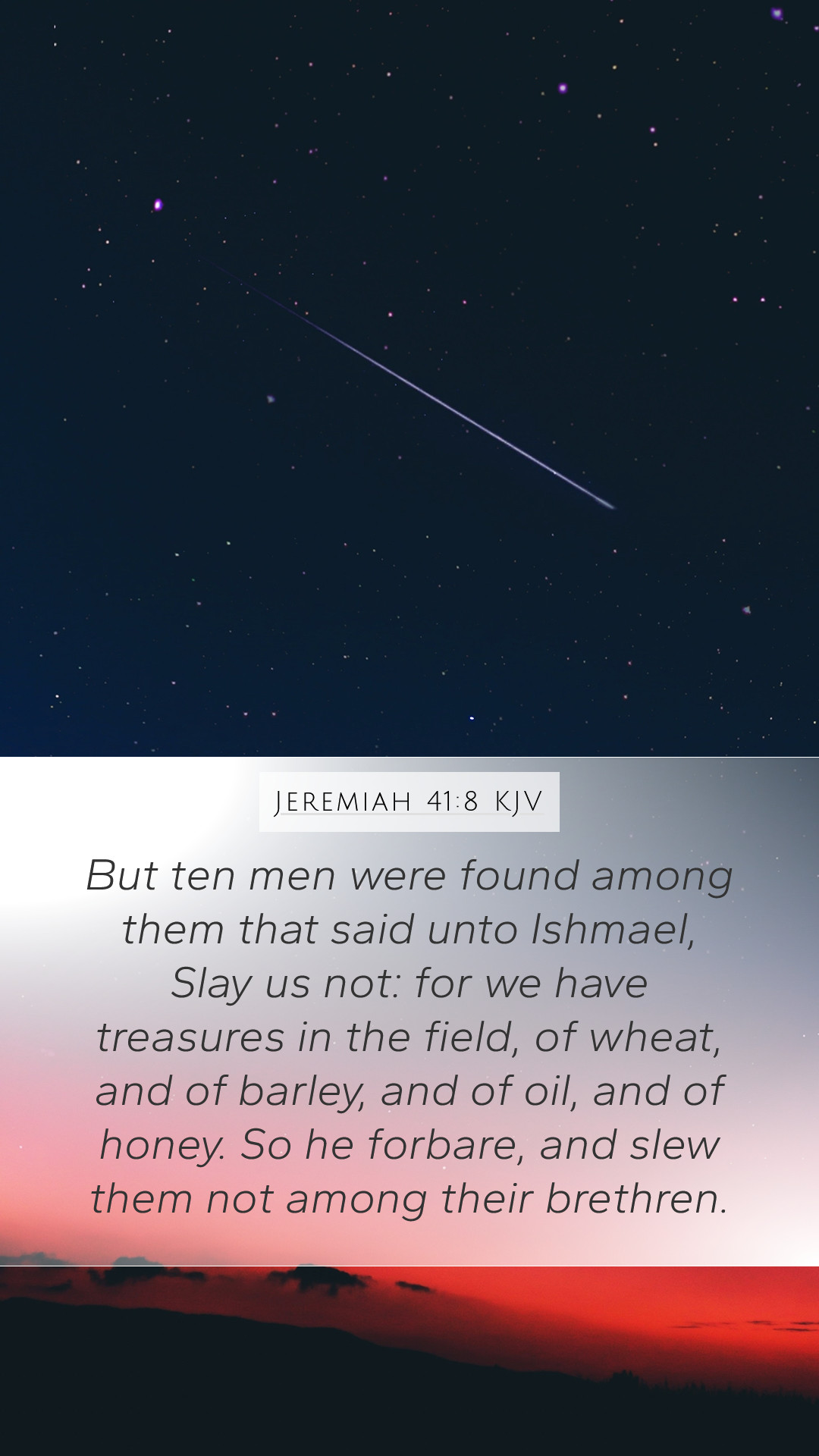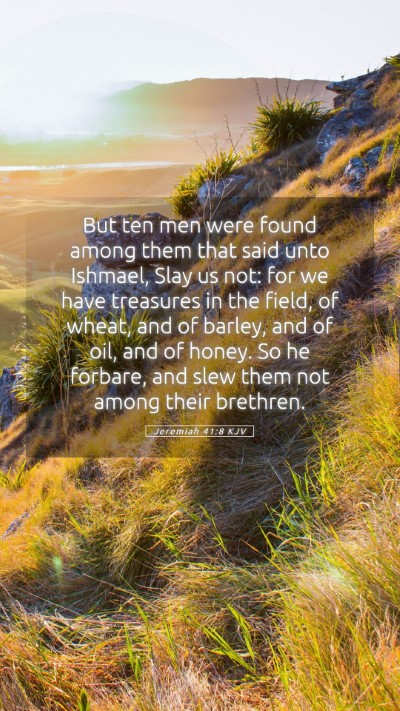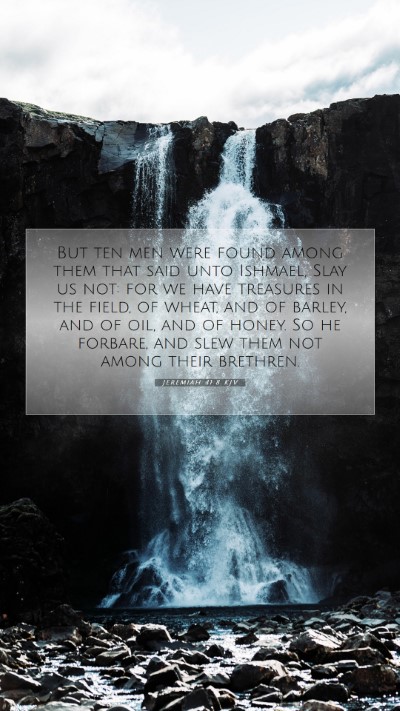Understanding Jeremiah 41:8
Jeremiah 41:8 reads: "But ten men were found among them who said to Ishmael, 'Do not kill us, for we have stores of wheat, barley, oil, and honey hidden in the field.' So he refrained and did not kill them with their brethren." This verse presents a key moment in the account of the aftermath of Jerusalem's fall, offering deep insights into human behavior and divine oversight.
Bible Verse Meaning
The verse reflects a situation filled with tension and desperation. Following the Babylonian conquest, those who remained faced severe threats, not only from foreign invaders but also from fellow Jews like Ishmael. The request for mercy highlights the struggle for survival amidst chaos.
Insights from Public Domain Commentaries
-
Matthew Henry
Henry comments on the nature of the plea made by the ten men, indicating their sensible approach to bargaining for their lives. He notes that their offer of stored goods signifies a deeper human instinct for survival, showcasing their resourcefulness even in dire straits. The ten men exemplify those who tried to negotiate amidst disaster, revealing the struggle between self-preservation and moral considerations in times of crisis.
-
Albert Barnes
Barnes points out the significance of the hidden provisions. The hidden stores of wheat, barley, oil, and honey have symbolic implications. They represent the remnants of stability and abundance that could sustain life. Barnes observes that even in a desolate period, God’s provision is not entirely absent, emphasizing the hope that persists despite overwhelming despair.
-
Adam Clarke
Clarke provides a detailed examination of the historical context regarding Ishmael's intentions and the political dynamics at play. He stresses that the act of refraining from killing these men exhibits a strategic decision by Ishmael, highlighting that self-interest can occasionally temper cruelty. This raises profound questions about morality in leadership and governance under stress.
Key Themes and Reflections
Several themes arise from Jeremiah 41:8:
- Moral Choices in Crisis: The decision by Ishmael to spare the lives of the ten men illustrates the complexity of moral decision-making in times of peril. It reflects a struggle between ruthless ambition and a measure of compassion.
- Divine Providence: The presence of the hidden provisions suggests that there are always traces of God’s provision, even when it seems all hope is lost. It serves as a reminder to trust in divine providence in difficult circumstances.
- Human Negotiation: The negotiation for life over death indicates a natural human instinct to preserve life, emphasizing the theme of self-preservation even in morally ambiguous conditions.
Application of Jeremiah 41:8
This verse can be applied broadly to our lives today, emphasizing the importance of making moral decisions, the act of negotiating carefully with others, and recognizing God’s provisions even when circumstances appear dire. Here are some reflections:
- When faced with ethical dilemmas, consider the lives affected by our decisions.
- Look for signs of hope and provision in every situation.
- Understand the instincts that drive survival responses and how they can conflict with ethical considerations.
Bible Cross References
- Jeremiah 39:4-5 - Describes the fall of Jerusalem and the fates of those left behind.
- 2 Kings 25:25 - Provides additional context about the aftermath of Jerusalem's destruction.
- Isaiah 30:1-5 - Reflects on the consequences of seeking help from others instead of God.
Conclusion
In summary, Jeremiah 41:8 offers profound insights into human behavior when faced with adversity, the moral complexities of survival, and the ever-present hope found in God's provisions. For those engaged in Bible study or seeking Bible verse meanings, this verse serves as a vital touchpoint for understanding the challenges of the human condition and the divine oversight that permeates our circumstances.


